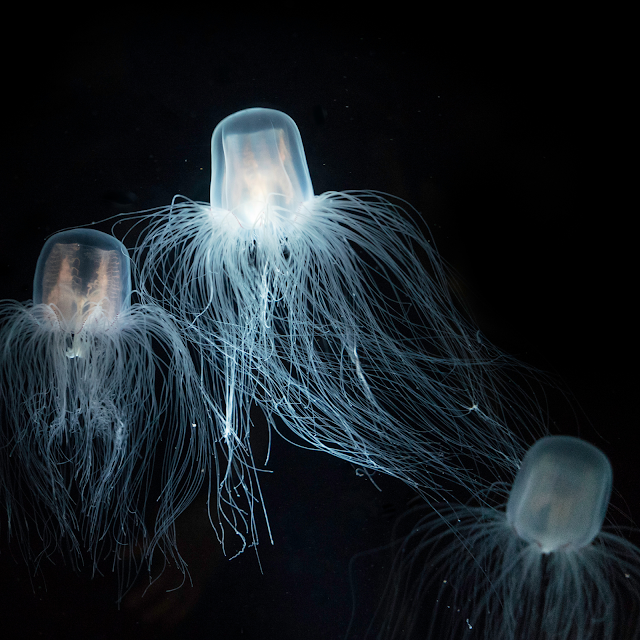Near-Immortal Biomechanics and the Search for Eternal Life
The entire point of these essays is to begin a thesis to change the way we look at the processes behind biomechanical death. But there are movements that intend to change more than just the way we look at it; they are trying to erase biomechanical death processes altogether. Enter Aubrey de Grey.
Dr. De Grey is described as biomedical gerontologist, and has devoted a significant portion of his career to studying cellular senescence and aging. Namely, he believes (and has even proclaimed) that it will be possible to put an end to cell senescence entirely, so that one day humans no longer die from age-related causes. A bold claim, to be certain. Obviously, this hints at some type of premature immortality; it suggests that we may be able to avoid certain types of death. If you juxtapose this work with the recognition given to current immortalized cell lines, then you can understand how these sciences might conjoin to promote some type of immortality in human beings somewhere in the future.
Let me submit why this isn't a good idea.
First of all, biomechanical death is part of the system of renewal that nature (of which we are an integral part) goes through to reinvigorate and rejuvenate the life on our planet. At any given moment, death is in process all around you. The table you might be sitting at now is dying - as strange as that seems, tables can and do die (its tiniest parts over time will cease to spin and energize in a process called entropy). The trees outside your window are in a death process. So are your children. So is your dog, the flowers, the pavement, etc. This rising and falling of living processes is the breathing of our world; it is the very heart of life itself.
 |
| A certain species of jellyfish actively acheive biological immortality through the absence of cellular senescence. |
As humans, we are an integrated part of the natural processes of our planet. Though we have managed to consider ourselves apart from it, we are not man apart - we are fluidly fixed threads in the tapestry of this cosmos, and to pluck at one strings causes another to resonate ad infinitum. Our attempts to live as parts separate from the whole have caused an enormous upheaval in our planet's natural resources, as we now face what is potentially the first man-made ecological crisis ever seen by our planet and its inhabitants.
Our first (but very significant) step in the process of disconnection was (arguably) wide-scale agriculture. Further steps to disconnect were taken through processes of politicalization and then industrialization, and now our cheap and easy energy has removed us from the sensitivities to our natural environmental nearly altogther. We continue to press against the finite limits not only of our resources but also our world - we scratch at the boundaries wondering what we can exploit next. Now, it seems, we will attempt to eliminate certain causes of death to take steps toward becoming biologically immortal. This continued thwarting of the natural order; the smothering of the world's labored breathing by one of its inhabitants - will not delay or reduce the possiblity of our demise, but instead will hasten it, and remove from our brief existence its life and energy.
Thus, any attempts by us to circumnavigate (or renegotiate with) the cycles of nature - our Mother - will further involve us in the consequences of her cycles, and deepen - not lessen - our suffering. There are some species who have acheived biological immortality (meaning they do not suffer any death by means of cellular senescence) there are no beings alive that have acheived true biomechanical immortality. We are no differenent, and our idea that we can escape the return of ourselves to our source code - if you will - is merely a symptom of our deepest fears manifested in our current material reality.
Eternal life in a biomechanical meat suit is not only undesirable, it is completely unnecessary and irrelevant.

